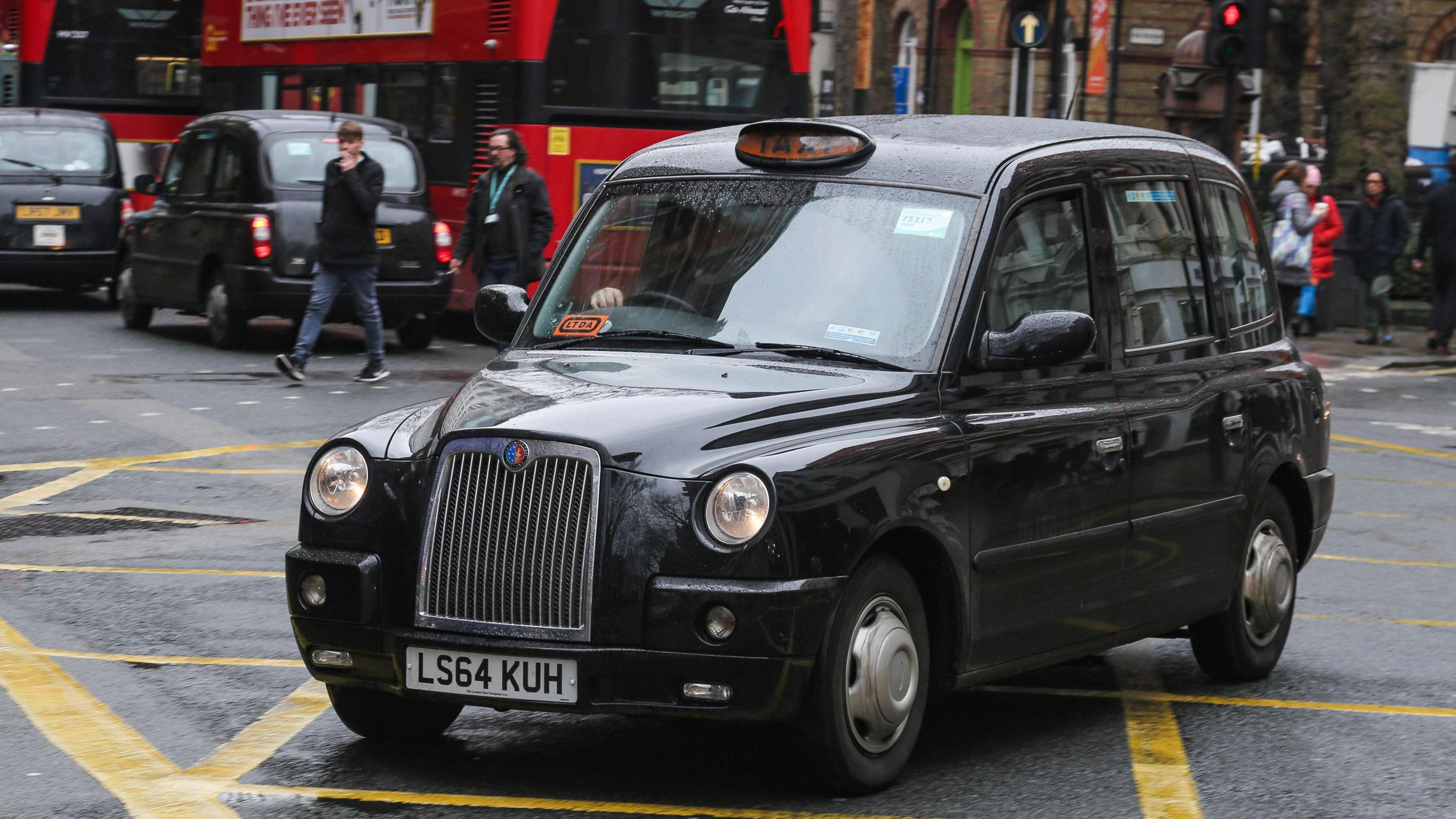TfL faces calls to keep Congestion Charge exemption
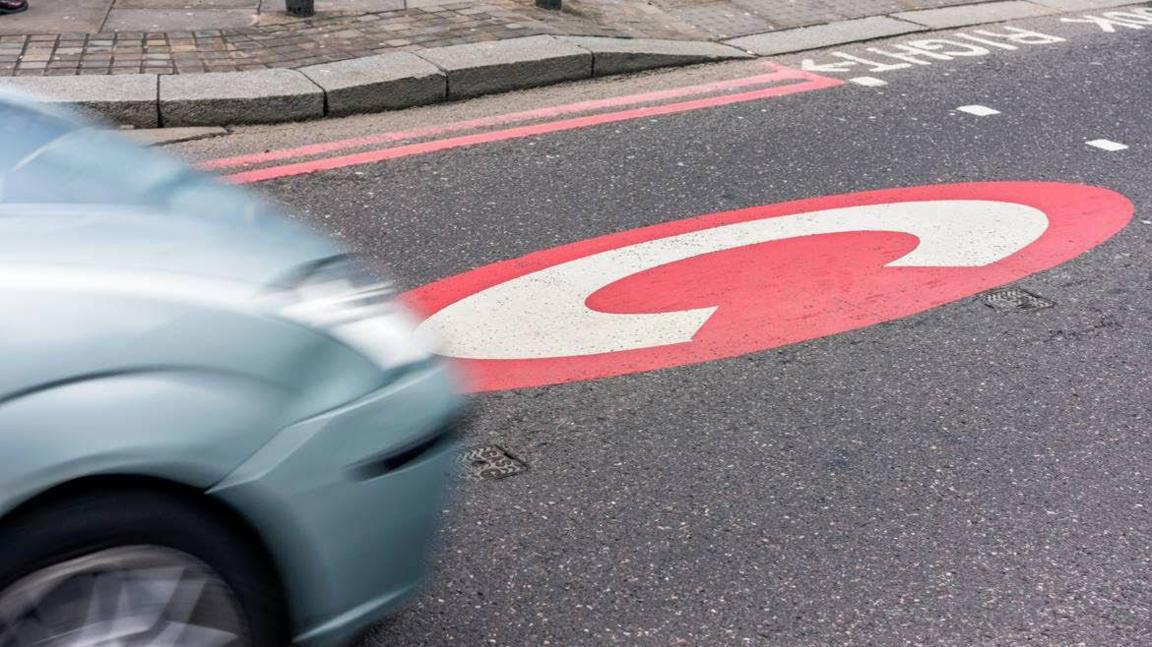
The current 100% discount for electric vehicles is scheduled to end in December
- Published
Transport for London (TfL) is facing calls to reconsider removing the electric vehicle exemption to the Congestion Charge.
Elly Baker, Labour's City Hall spokesperson for transport, said this would be "counter-productive" and create barriers for Londoners to move away from petrol and diesel.
The 100% Cleaner Vehicle Discount is scheduled to end on 25 December and will be replaced by a 25% discount for electric cars and a 50% reduction for larger electric vehicles.
TfL say continuing the full discount "would lead to worsening traffic" and make the Congestion Charge less effective.
The plans also include raising the Congestion Charge fee from £15 to £18 from 2 January 2026.
This means that people with an electric car would need to pay £13.50 every time they drive into central London, and traders with electric vans would pay £9.
These changes are expected to raise an additional £40 million in the first year.
'We should be making it easier'
In a letter to TfL, Ms Baker said: "Businesses need deliveries, as do hospitals and schools. Small businesses such as electricians and plumbers still need to enter the Congestion Charge zone to work."
She warned that these plans would lead to small businesses returning to petrol or diesel vehicles.
Ms Baker, who also chairs the London Assembly Transport Committee, told the Local Democracy Reporting Service: "If we want Londoners to switch to cleaner vehicles, we should be making it easier, not harder."
The Conservatives have expressed support for Ms Baker's position.
Thomas Turrell, environment spokesperson for the City Hall Conservatives, said: "Forcing electric vehicles to pay the Congestion Charge removes incentives from drivers and businesses from switching to greener vehicles."
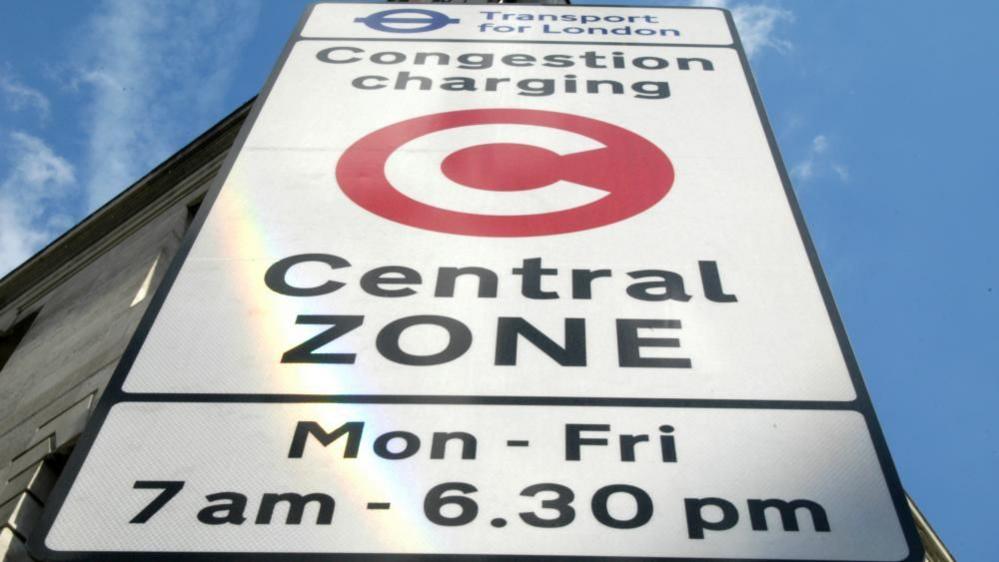
The proposals also include increasing the Congestion Charge fee from £15 to £18
Ms Baker's letter also raised the issue of car clubs, saying they should be treated differently from private electric cars.
She wrote: "Car clubs are a key tool to reduce need for car ownership and, as a result, reduce car journeys.
"Congestion charge policies should support car clubs as a tool to reduce unnecessary journeys and support a transition to cleaner vehicles."
Car clubs are short-term car rental services which allow members to use locally-parked cars for individual journeys, meaning they can give up their cars whilst allowing for occasional car travel.
She said the current proposals risked making it more difficult for these clubs to operate.
A TfL spokesperson said in response: "Without the changes proposed, the Congestion Charge would become less effective, with an estimated additional 2,200 vehicles in the zone on an average weekday.
"We are proposing a new Cleaner Vehicle Discount for those who do not need to drive so they can still benefit from a discount if they drive an electric vehicle."
They added that there will be a greater discount for "journeys that are harder to switch to walking, cycling or public transport", such as commercial vans.
It also defended the decision by saying it was announced in December 2018, giving drivers seven years' advance notice.
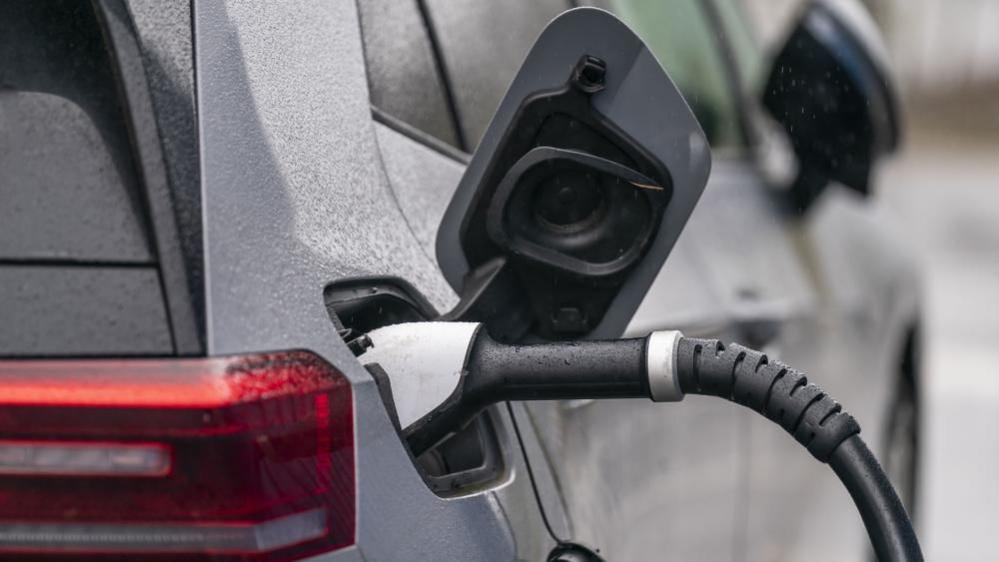
Ms Baker also said the changes would make it more difficult for car clubs to operate
The Congestion Charge was introduced in central London in 2003, covering the area within the Inner London Ring Road.
This includes the City of London and the West End, with 136,000 residents living inside the zone.
The most recent increase to the fee was in June 2020, when it was raised from £11.50 to £15.
Listen to the best of BBC Radio London on Sounds and follow BBC London on Facebook, external, X, external and Instagram, external. Send your story ideas to hello.bbclondon@bbc.co.uk, external
- Published27 May
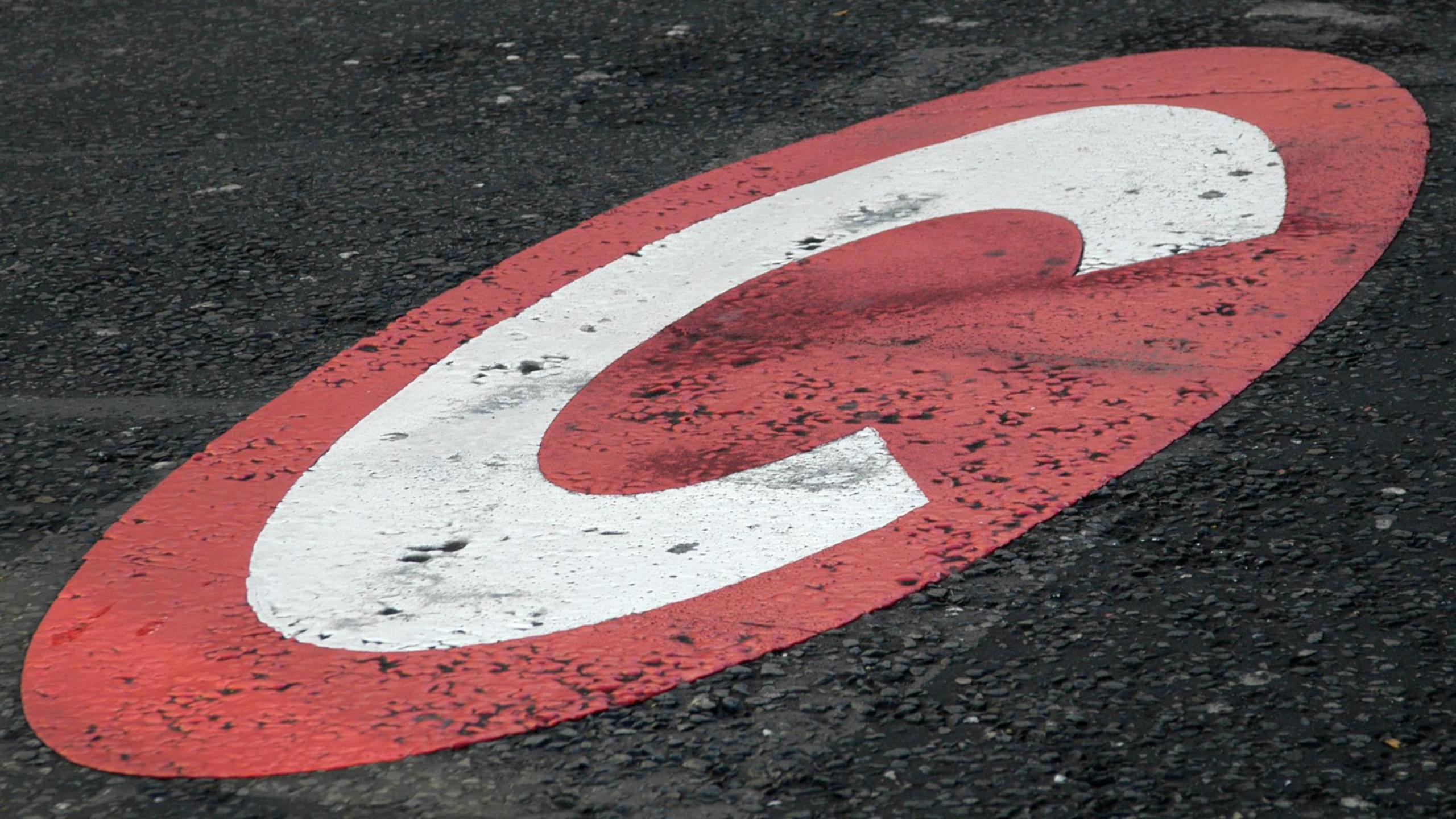
- Published6 October 2024
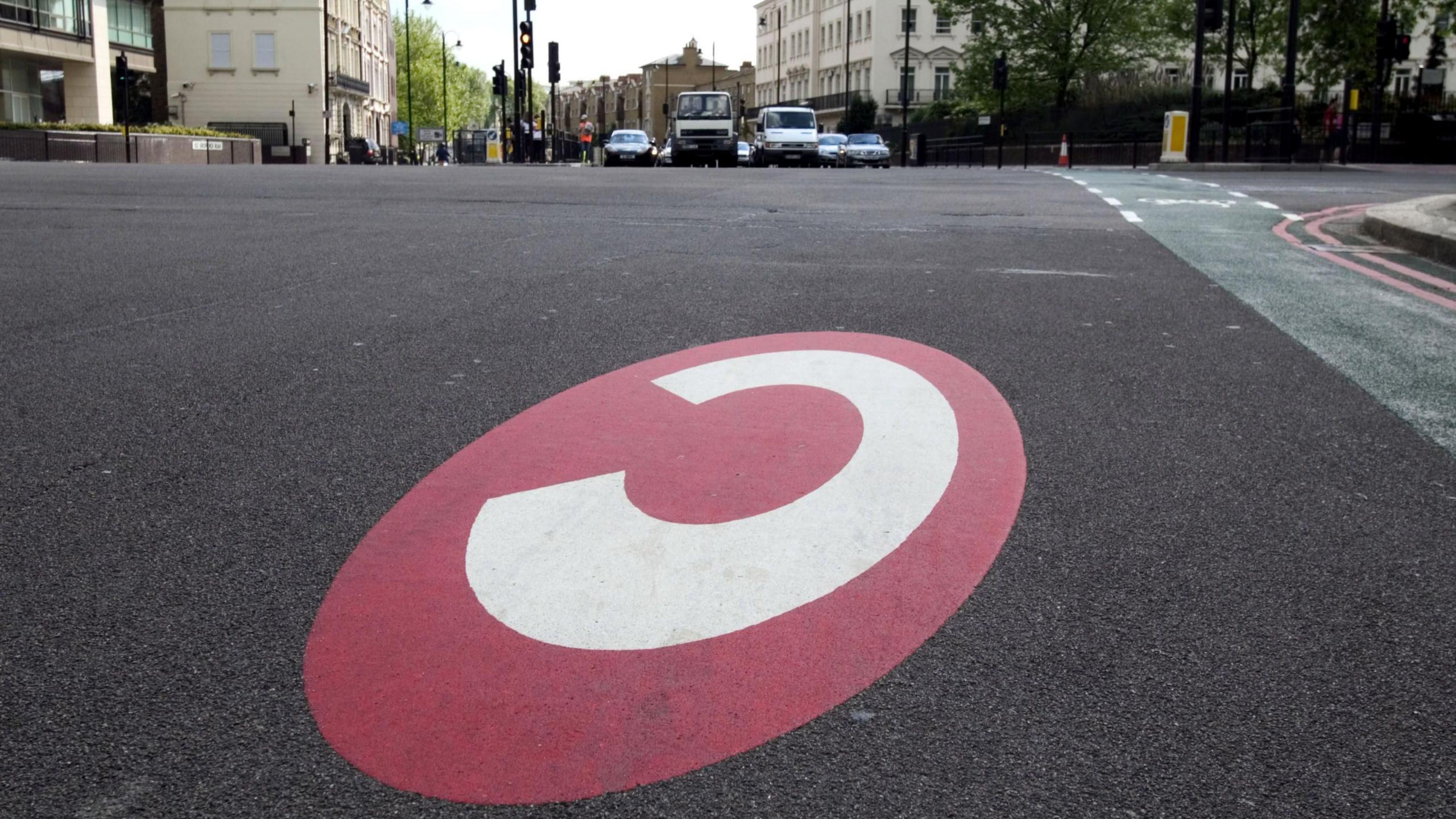
- Published20 May 2024
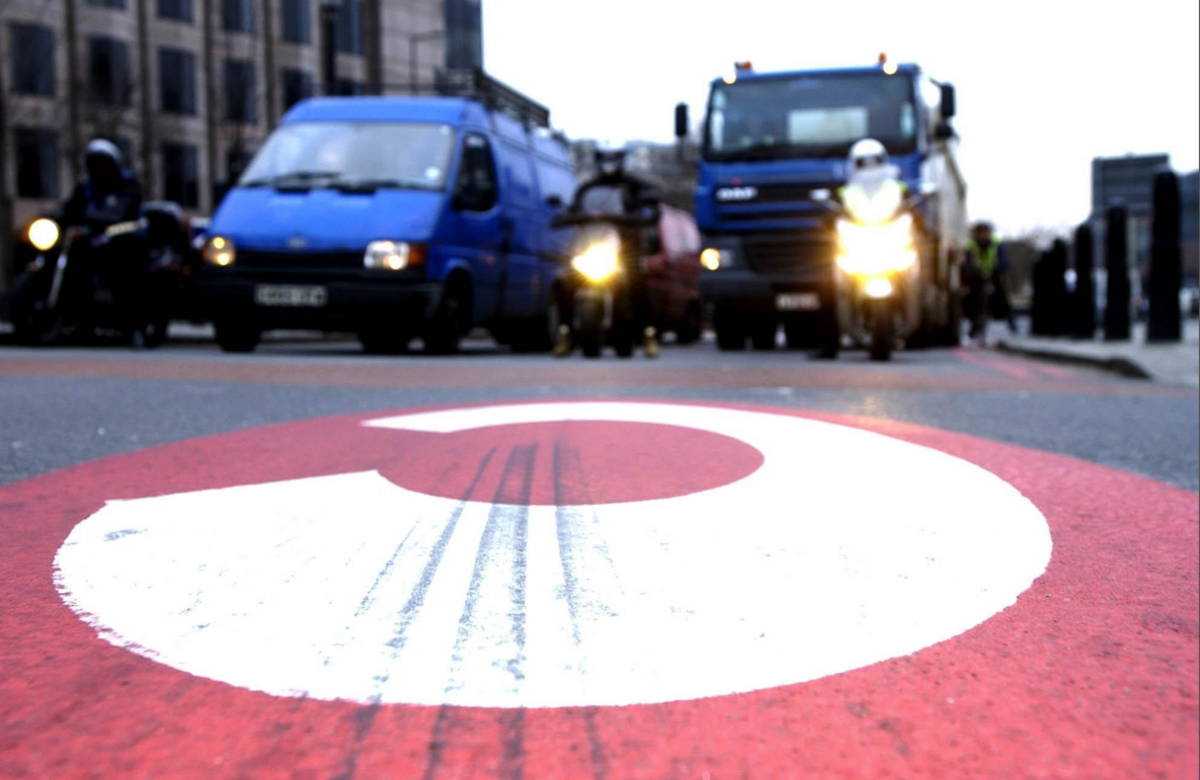
- Published11 October 2024
